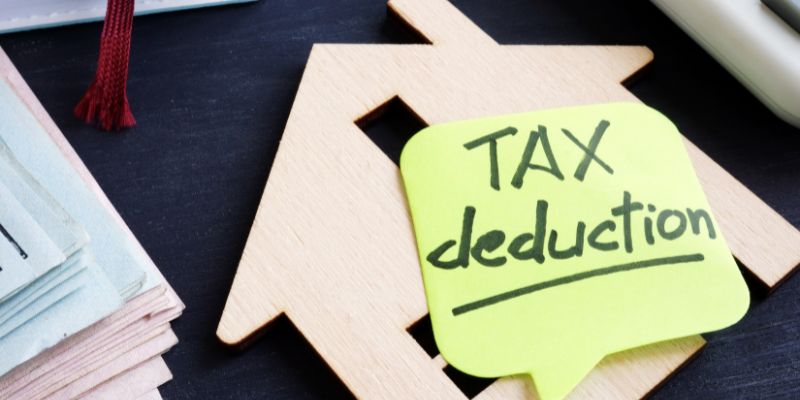New York Property Taxes: Everything You Need to Know
Apr 02, 2024 By Rick Novak
Those who are planning to own or already own some real estate in New York should be familiar with the property taxes in the city. New York property taxes are imposed on anyone who is looking to buy, sell, or renovate their property in the city. Therefore, we are going to discuss everything you need to know about the New York Property taxes and how they work.

How do New York Property Taxes Work?
New York City is known to be one of the most expensive cities in the world when it comes to real estate. When we talk about expensive real estate, it's pretty understandable that there will be higher property taxes as well. However, you would be surprised to know that the NYC state does not impose property taxes in the city.
New York property taxes are imposed on any type of property that consists of land and something built on it in NYC. Here are some of the types of properties that are eligible to pay property taxes.
- Apartment buildings.
- Farmhouses and farms.
- Mobile Homes
- Office buildings.
- Single or multiple-story houses.
- Vacant Land.
According to state law in New York, every real property in their respective municipality has to be assessed at a defined percentage value in the market every year (except for Nassau County and New York City). This law states that your assessment will be equivalent to the defined percentage of market value according to the local assessor.
Hence, you will be charged property taxes according to the assessment made by the local assessor's office. Properties in New York are assessed every year, which means that there is a chance of New York property taxes increasing if the value of your property increases with the market.
The final amount of New York property tax will be calculated by the concluding assessment amount multiplied by the local property tax rate. The New York property taxes are imposed and decided by the local government, so they may vary depending on the location. To give you a better idea, here is a breakdown of NYC property tax assessed value that may change from time to time.
- The market value of your property in NYC.
- Additions, renovations, or any physical changes done to your property.
- If you lost any tax exemption or if the value was reduced.
- If the assessed value is keeping up with the previous changes in the market's value.
Some of the New York City residents may have to pay two property taxes per year. The first one is issued during the month of September (when the assessment is finalized). The second property tax arrives in January of the following year. The first property tax is assessed by the education department, like schools and libraries. The second property tax bill is usually assessed by the county for town taxes.
Classification of New York Property Taxes
Here are how the New York property taxes are classified based on the type of property you own.
- Class 1: Residential properties with one to three units.
- Class 2: Residential properties having more than 3 units.
- Class 3: Special franchise properties or utility company equipment storages.
- Class 4: Any other type of property like stores, offices, hotels, or industrial units.

Reductions or Exemptions from New York Property Taxes
Fortunately, there is a criterion that earns you a New York property tax exemption, which can significantly reduce the value of your property or your property tax bill. Here are the exemptions permitted by New York law on property taxes.
Exemption for Senior Citizens
According to New York's law, the local governments and educational departments are bound to give senior citizens up to a 50 percent reduction in the assessed value of their home/residential property. To be eligible for this exemption, you have to be 65 years old or above. Moreover, there is a criterion to meet income limitations and some other requirements to get the senior citizen exemption.
Local bodies can also reduce the exemption for senior citizens below the 50 percent mark if their income increases by a certain limit. Local bodies can establish a system according to which the exemption reduces as the income increases and vice versa.
Exemption for Veterans
If you are a veteran who has purchased a property in New York with pension funds, bonuses, or insurance funds, then you are eligible for getting a veterans exemption. However, the amount or percentage of exemption is decided by the local community, and it varies depending on the location in New York.
Local bodies also have the right to give exemptions to those who have participated in war or received a medal from the armored forces. And the Cold War veterans get special exemptions.
Exemption for Disabled
The New York State law permits disabled persons up to 50% exemption from property taxes. To be eligible for this exemption, you must have valid documentation that proves your disability. Moreover, you must meet certain income limitations, and then there are some other requirements defined by the local bodies to finalize your assessment. If the income exceeds the defined limit, then the exemption may drop below 50%, and it keeps dropping depending on how much your income exceeds the limit.
Conclusion
The tax revenue collected from the property or real estate is not used by the city itself. The New York property taxes are assessed by the local governments and school districts. Moreover, the property tax revenue from New York is the biggest source of income for municipal corporations. In certain cases, you might get an exemption from the property taxes, which is quite a relief for someone living in NYC.








